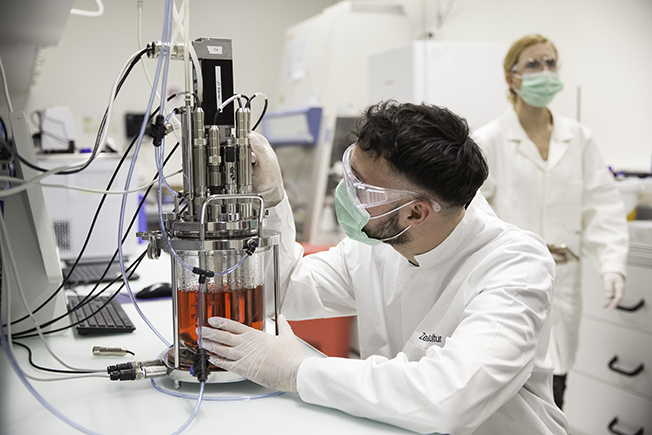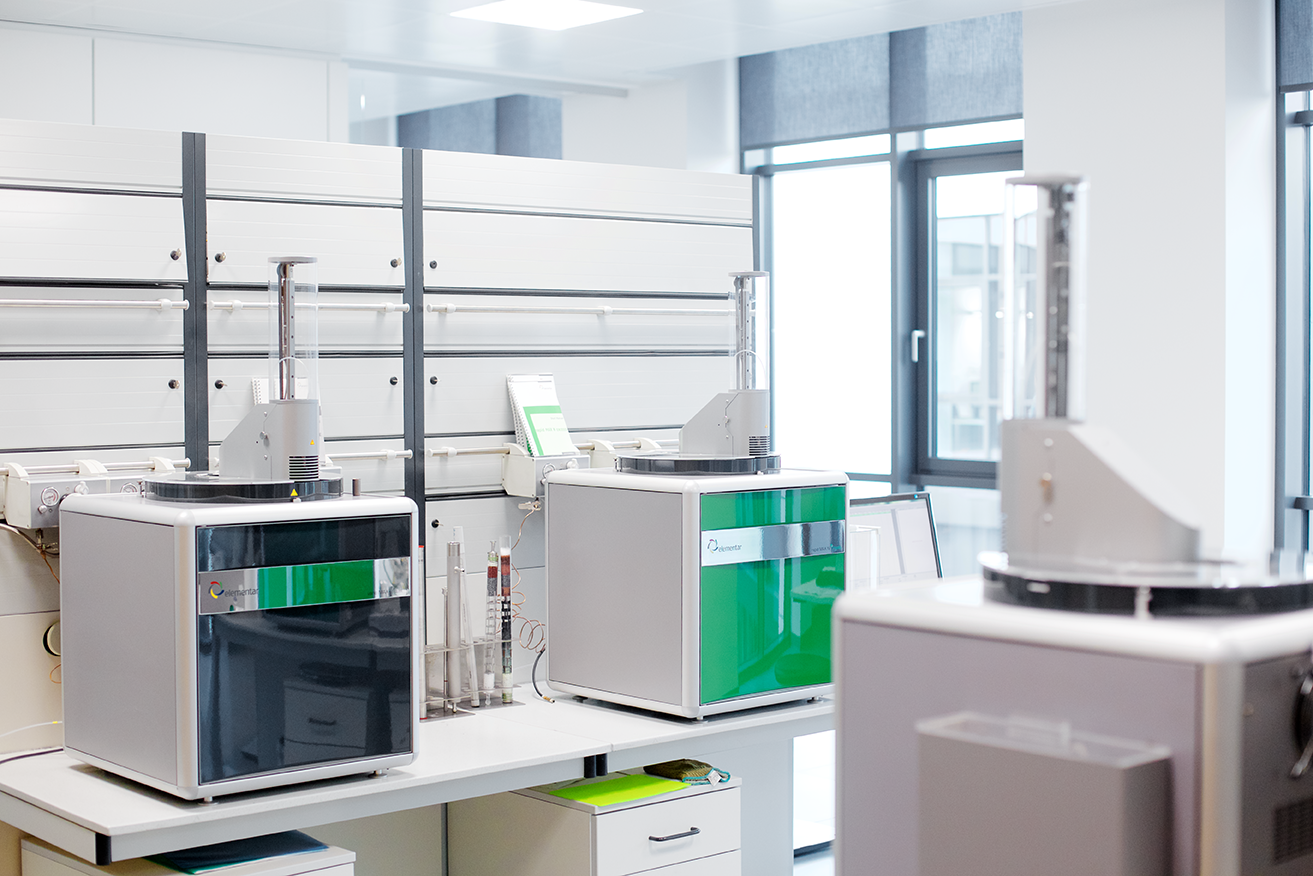

Tiny but mighty: how yeast is revolutionizing food and nutrition
Packed with protein and health benefits, yeast has emerged as one of the most sustainable solutions to the global protein shortage. Here, Dr Weizhe (Winston) Sun explores how Angel Yeast is harnessing this potential to create innovative food and nutritional products
Despite its small size, yeast holds a surprisingly complex world within its fungal form, according to Dr Weizhe (Winston) Sun, Product Manager, Angel Yeast Europe. “This single-celled organism plays a large role in our daily lives,” he suggests. “It’s essential for fermenting bread, and creating the beverages that we enjoy. It can also be found in seasonings and act as a probiotic, promoting gut health. Furthermore, yeast offers valuable components such as glutathione and polysaccharides. Even the wastewater produced during yeast fermentation finds a purpose as an eco-friendly fertilizer!”

As the company’s name alludes, yeast is a specialized chosen subject for Angel Yeast, with its know-how and expertise having been refined over a period of almost four decades.
Back in 1986, when the company was established, Angel Yeast started out by specializing in baker’s yeast only. Over time, though, the Chinese company has grown to become a global leader in yeast technology, supplying dry yeast, yeast extract, and yeast protein. As you would imagine, its initial focus has subsequently expanded somewhat to encompass various sectors, so in addition to baking, that now includes food ingredients, nutritional products, and applications in biotechnology. The company’s product range is now incredibly diverse, offering both traditional baking essentials such as baker’s yeast (Saccharomyces cerevisiae) and advanced solutions including specialized enzymes.
Different class
Sun suggests that what separates the Angel Yeast from other suppliers is that it goes beyond baking and brewing to leverage the full potential of yeast extracts in food ingredients. These offer an advantage, providing features such as flavor enhancement, salt reduction, masking unwanted off-notes, and clean-label suitability.
Hence these versatile yeast extracts have found widespread applications in international and domestic food and beverage sectors, including soups, instant noodles, flavorings, snacks, meat products, dairy products, and even plant-based meats, in doing so addressing the consumer demand for natural, nutritious, healthy, and delicious upgrades in food.

Exploring yeast’s potential in nutrition and wellness, its offerings include yeast protein (AngeoPro), probiotics from Boulardii yeast, and mineral-enriched yeasts containing zinc, selenium, and chromium.
As well as this versatility, one of the main drivers for Sun and his colleagues lies in developing yeast protein as a sustainable solution to the global protein shortage. “Compared to plant-based proteins, yeast protein production requires less water, land, and energy,” continues Sun. “And unlike weather-dependent crops, we produce our yeast protein through a reliable and scalable fermentation process. A single large fermentation tank can generate 30 tons of protein daily, matching the annual protein output of a vast soybean field (100,000-300,000 acres).”
As a microorganism, yeast also offers a rapid growth rate and exceptional conversion efficiency, which translates to producing large quantities of protein in a short timeframe. Furthermore, yeast protein production relies primarily on renewable plant-based materials such as molasses or hydrolyzed starch, which are often byproducts or waste from agricultural processes. “Utilizing these resources effectively not only reduces waste but also minimizes the environmental impact of protein production,” Sun adds.
A single large fermentation tank can generate 30 tons of protein daily, matching the annual protein output of a vast soybean field (100,000-300,000 acres)
Greener methods of producing proteins are of vital importance. Statistics from the UN’s FAO and World Resources Institute highlight the environmental burden of animal agriculture, which contributes ~15% of global carbon emissions. Producing 1kg of animal protein emits many more greenhouse gases than plant-based protein, with beef production being particularly egregious at 250kg per kilogram. In contrast, AngeoPro yeast protein production generates just 10.63kg of carbon emissions per kilogram – a mere 4% of beef!

Nutritionally speaking
Yeast has also attracted interest for its high nutritional value. “It offers a compelling profile,” Sun reports. “It’s a complete protein, containing all eight essential amino acids that our bodies cannot synthesize on their own. Furthermore, yeast protein is rich in lysine – an amino acid often limited in plant-based protein sources. This well-rounded nutritional content makes yeast protein suitable for various populations, particularly in personalized nutrition supplements.”
Interestingly, Sun reveals Angel Yeast has the potential to further develop and optimize yeast protein-based personalized nutrition products. By tailoring these to address the needs of specific groups (i.e. the elderly, athletes, vegetarians), it can cater to a wider range of consumers.
However, large-scale, cost-effective production faces several technical hurdles. Developing high-protein yeast strains requires specialized techniques such as directed mutagenesis to select the most suitable candidates for protein production. “Optimizing downstream extraction processes then helps maximize the protein content in the final product,” says Sun, who adds that optimizing the fermentation process for these yeast strains is also crucial to reduce production costs. Additionally, enhancing downstream extraction processes – particularly drying techniques – is essential to improve the yield and overall quality of the final yeast protein product.
Angel Yeast starts with a specific type of brewing yeast chosen for its rapid growth and high biomass. “Through advanced screening and breeding techniques, we develop high-yielding and stable protein strains,” Sun reveals. “Furthermore, we employ enzyme hydrolysis to purify the protein and modify it for various food applications. Currently, we are producing yeast protein on a large scale and incorporating it into various food products, including flavorings, meat alternatives, dairy products, and nutritional foods. Our existing capacity is 1,000 tons per year, with plans to expand to 10,000 tons annually at the end of this year.”
In terms of the flavor profile of the company’s AngeoPro product, its mild taste means it can mask unpleasant off-flavors in other protein sources, allowing for more diverse and appealing protein products. Its clean taste with no impurities also enhances the overall sensory quality of protein foods.
Blended approach
However, integrating yeast protein into various alternative protein products presents some challenges. “Blending yeast protein with other protein sources requires careful consideration,” notes Sun. “Proteins from different sources have varying properties. Finding the right combination to achieve optimal nutrition and flavor is a key challenge. Modern food processing techniques, such as enzyme engineering, can improve the solubility of yeast protein without affecting its taste.”
But by combining modern food science and technology, such as proteomics and flavoromics, scientists can analyze and predict how yeast protein behaves in different formulations, which allows for precise control over its flavor characteristics.

Overall, yeast protein’s unique flavor profile makes it a valuable ingredient for developing alternative protein products. Through continued research and innovative technologies, the challenges associated with its application can be effectively addressed, paving the way for delicious and healthy food products that meet diverse market demands.
“Yeast protein, rich in amino acids, vitamins, and minerals, complements nutritional gaps in plant proteins like soy and pea, resulting in a well-balanced profile,” says Sun. “Furthermore, the combination improves the texture and mouthfeel of food products, making them more akin to traditional animal proteins.”
Sun suggests this strategy can be further tailored to specific consumer needs. For example, sports nutrition products can benefit from increased yeast protein content to support muscle repair and growth in athletes. In contrast, products aimed at the elderly can be optimized by adjusting the types and proportions
of plant proteins to enhance digestibility and nutrient absorption.
Scientific advances also hold promise for even more tailored yeast protein production. Thanks to progress in yeast genome research, scientists can now precisely edit genetic information within yeast, which allows them to synthesize specific proteins, including entirely new ones not found in nature.
“Gene-editing technologies facilitate the design and adjustment of amino acid sequences and protein functions to meet specific needs,” says Sun. “However, it’s important to note that Angel Yeast utilizes non-mutagenized, domesticated, and non-GM wild strains of brewing yeast for our production. These have been rigorously tested by the Chinese Industrial Microorganisms Collection Management Center and confirmed to be safe and non-toxic.”
So, what does the future hold for this renowned yeast expert? Beyond ongoing efforts to refine yeast protein quality and explore its downstream applications, Angel Yeast is also collaborating with universities with a focus on tackling challenges in microbial protein production such as Fusarium protein (a large genus of filamentous fungi), Aspergillus oryzae protein, etc, and cell culture technologies. And given its success with yeast, few would bet against the company eventually becoming leaders in these fields, too!
For more information visit www.angelyeast.com
If you have any questions or would like to get in touch with us, please email info@futureofproteinproduction.com


%20ILVO%202.jpg)

.png)

